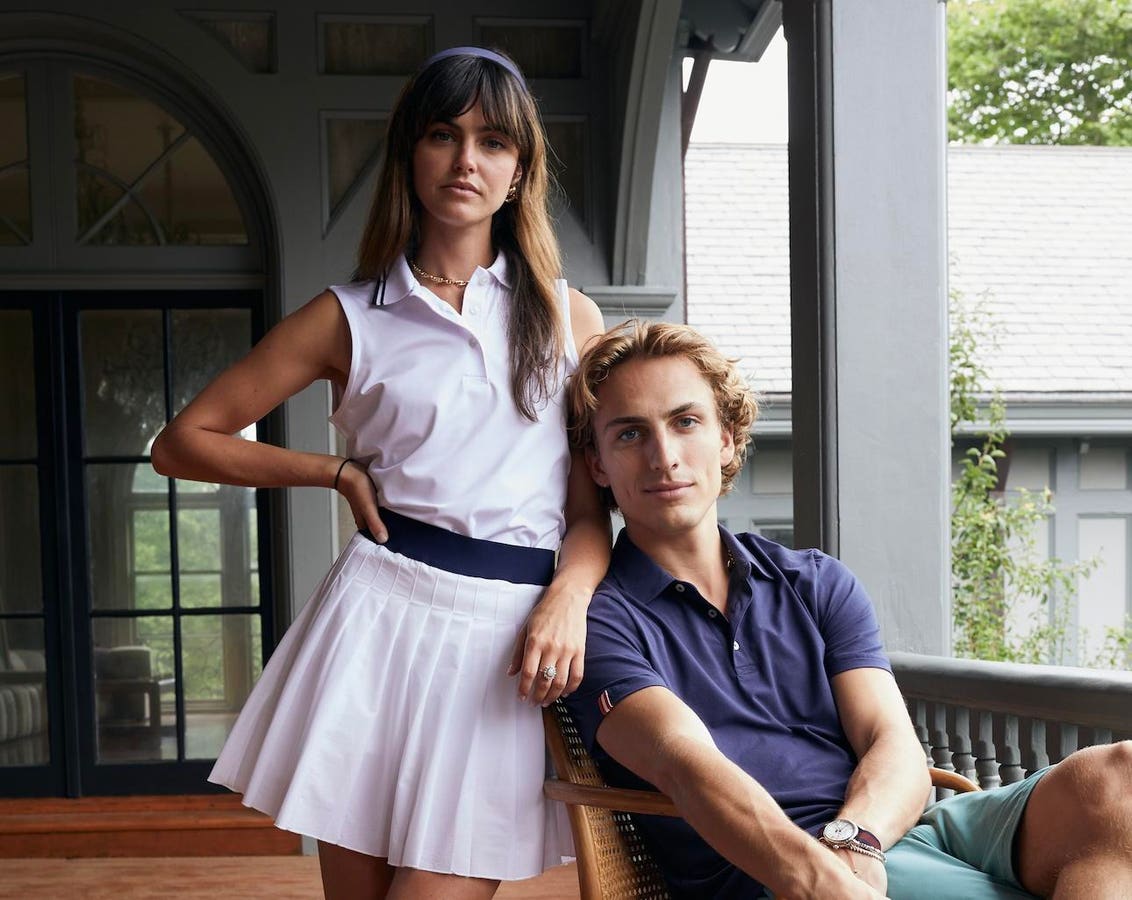American Heritage Tennis Brand Boast Awakens From Slumber
American heritage tennis brand Boast puts a premium on materials.
Boast A piece of American tennis heritage isn’t coming back to life—it was never dead, you see—but it is awaking from a slumber. Matthew Feuer purchased 1973-born Boast to revive the dormant brand.
“I think the brand has always had this classic American aesthetic,” the 30-year veteran of the footwear industry tells me. “We are going to continue to lean into that and reissue some of the pieces that have been popular along the way and then we will have some strategic collaborations going forward.”
Originally birthed in Connecticut, where it remains based today, Boast brought a level of irreverence to country club sports. The heyday of the brand included the ‘70s and ‘80s—Tom Cruise’s Risky Business character wore Boast and its Japanese maple leaf logo. Boast reverted to dormancy for much of the ‘90s and 2000s, but a mix of designers kept it going, starting in 2011, leading to Feuer, president and founder of The Leather Group, purchasing it and the brand’s undercurrent of premium positioning.
“I always thought the brand was cool, the branding was cool,” he says, noting he wore Boast as a high school tennis player decades ago. “We are going to be leaning heavily into the word irreverent. I think our consumer is probably a little bit irreverent. We are country club-esque.”
Boast was born in New England in the 1970s.
Boast With 30 years working with some of the biggest companies in footwear, Feuer thinks he’s learned quite a bit watching others. “I always believed that if I could ever own a brand, I would do things differently,” he says. “I used to wear Boast as a kid, and I loved it. [When it came available], I thought, ‘I am going to do this.’ It was that stupid, maybe, to just kinda go for it.”
Read More: New Orleans Superdome Renovations Create New Interior Experiences In a growing world of tennis brands, Feuer believes Boast can differentiate itself as a real American heritage offering. Thinking back to his earlier days when he was wearing Boast and many of his friends were choosing European heritage tennis brands, he appreciates the American legacy of Boast and its roots in New England. “I think our materials are excellent, we have simple, clean lines,” he says. “It is a startup with great heritage. It is a great brand with plenty of future runway and a really clean reputation.”
Feuer says the tricky part now is embracing the core customer who has been loyal for decades while bringing in a younger consumer who may not know the history. That results in the combination of collaborations with key partners—Mason’s Tennis in New York will likely be one of the first—that can show off the brand to new consumers, but also embracing a heritage portfolio, such as the 1983 polo, a premium Peruvian Pima cotton design. “I think that is iconic to the brand,” Feuer says, adding he will lean into the “since 1973” tagline. “That consumer has always remembered that, and it has relevance today. We are reissuing a lot of those real DNA pieces, which is a nod to our heritage.”
Boast’s premium materials set the fabrics and apparel apart.
Boast The fact that tennis continues to grow in popularity should help too. “Tennis is having such a good moment,” he says. “It will be good for our brand; it will create a lifestyle consumer. We are designing and developing for racket sports and if that ends up in peoples’ real lives, that’s great.”
Boast will sell into country clubs and resorts, picking ones that fit. He believes that the stuffier the club, the more intriguing it will be if they carry Boast. “I think it is really cool when great clubs do something a little irreverent,” he says, “a little unexpected.”
To capture the American heritage tennis space in a modern way, Boast will grow its performance products. Feuer’s brought in a range of designers and developers with legacy at major companies, such as Nike, New Balance, Converse, 47 and Reebok, saying that the performance product offers an area for growth.
To help spread the word, Boast has already started building relationships within the industry, having sponsored gear at the recent Tennis in the Land WTA tournament in Cleveland while engaging in talks with other tournaments, such as Indian Wells, the upcoming Garden Cup at Madison Square Garden in December and the Delray Beach Open, about apparel sponsorship deals.
“The more I get into it, the more I want to stay true to the racket sports world,” Feuer says. “We are really a racket sport-focused brand.”












 Bitcoin
Bitcoin  Ethereum
Ethereum  Tether
Tether  XRP
XRP  USDC
USDC  Solana
Solana  TRON
TRON  JUSD
JUSD  Dogecoin
Dogecoin